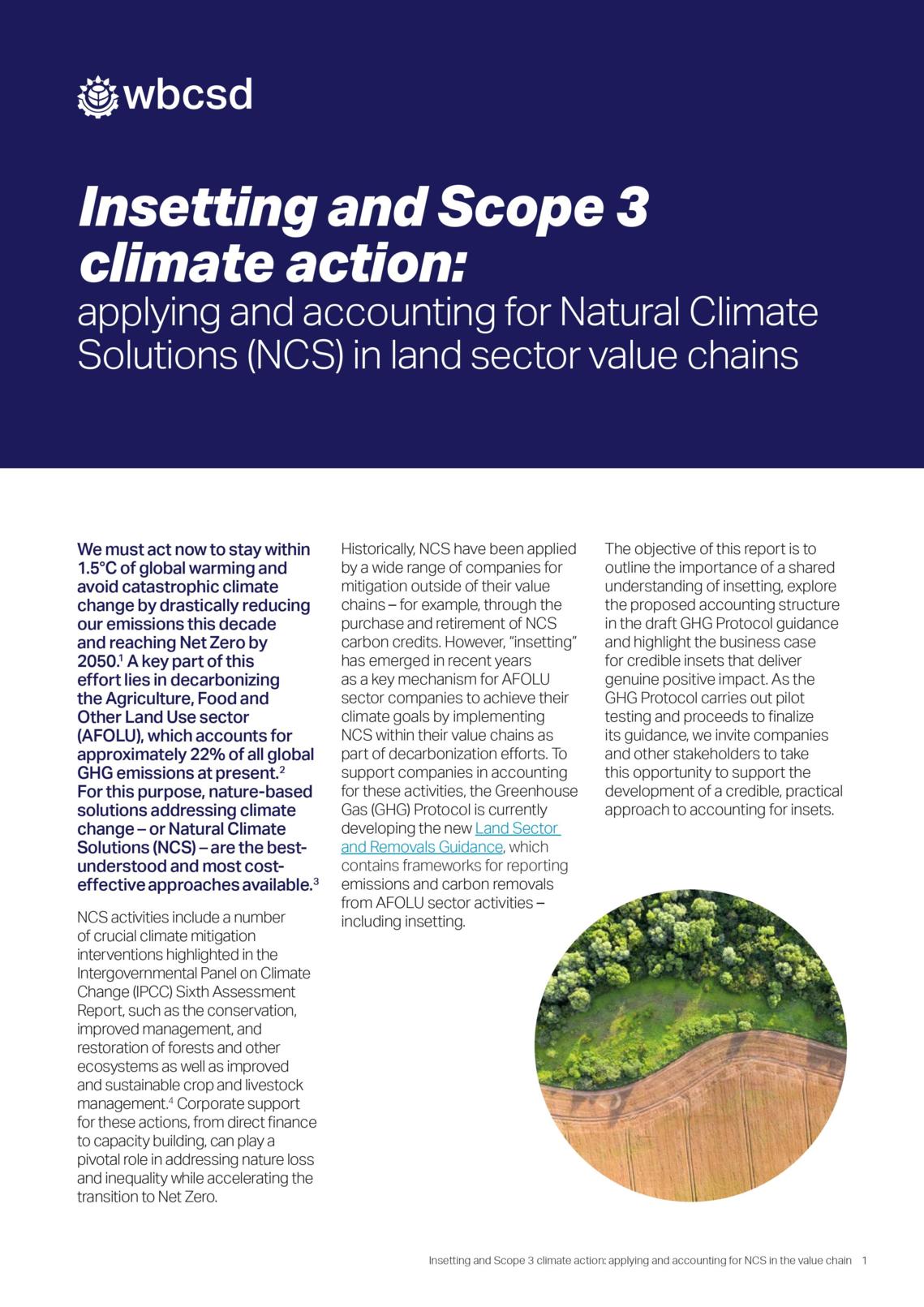
We must act now to stay within 1.5°C of global warming and avoid catastrophic climate change by drastically reducing our emissions this decade and reaching net zero by 2050. Nature-based Solutions (NbS) addressing climate change – or Natural Climate Solutions (NCS) – are among the best-understood and most cost-effective approaches available to decarbonize the Agriculture, Food and Other Land Use sector (AFOLU), which accounts for approximately 22% of all global Greenhouse Gas (GHG) emissions at present. “Insetting” has emerged in recent years as a key mechanism for AFOLU sector companies to achieve their climate goals by implementing NCS within their value chains as part of decarbonization efforts.
The objective of this paper on insetting and Scope 3 climate action is to outline the importance of a shared understanding of insetting and explore the proposed accounting structure in the new draft GHG Protocol Land Sector and Removals Guidance. This guidance contains frameworks for reporting emissions and carbon removals from AFOLU sector activities, including insetting, and highlights the business case for credible insets that deliver genuine positive impact.
Download the “Insetting and Scope 3 climate action: applying and accounting for Natural Climate Solutions (NCS) in land sector value chains” report for insights on:
- Existing definitions of insetting
- Key factors in the GHG Protocol draft guidance
- The business case for insetting
- The way forward
Readers can navigate to the associated elements of this report series using the links below:
- Overarching report: The role of Nature-based Solutions in strategies for Net Zero, Nature Positive and addressing Inequality
- Technical paper 1: The role of NCS in Net Zero action
- Technical paper 2: Insetting and using NCS to move toward Net Zero (this paper)
- Technical paper 3: Carbon standards for NCS credits
- Technical paper 4: Natural Climate Solutions and “core benefits”
In addition, take a look at our guide for C-Suite Executives ‘Natural Climate Solutions and the Voluntary Carbon Market’ that provides decision makers guidance to drive demand for high-quality NCS projects and urge companies to mitigate their emissions beyond their value chains.

